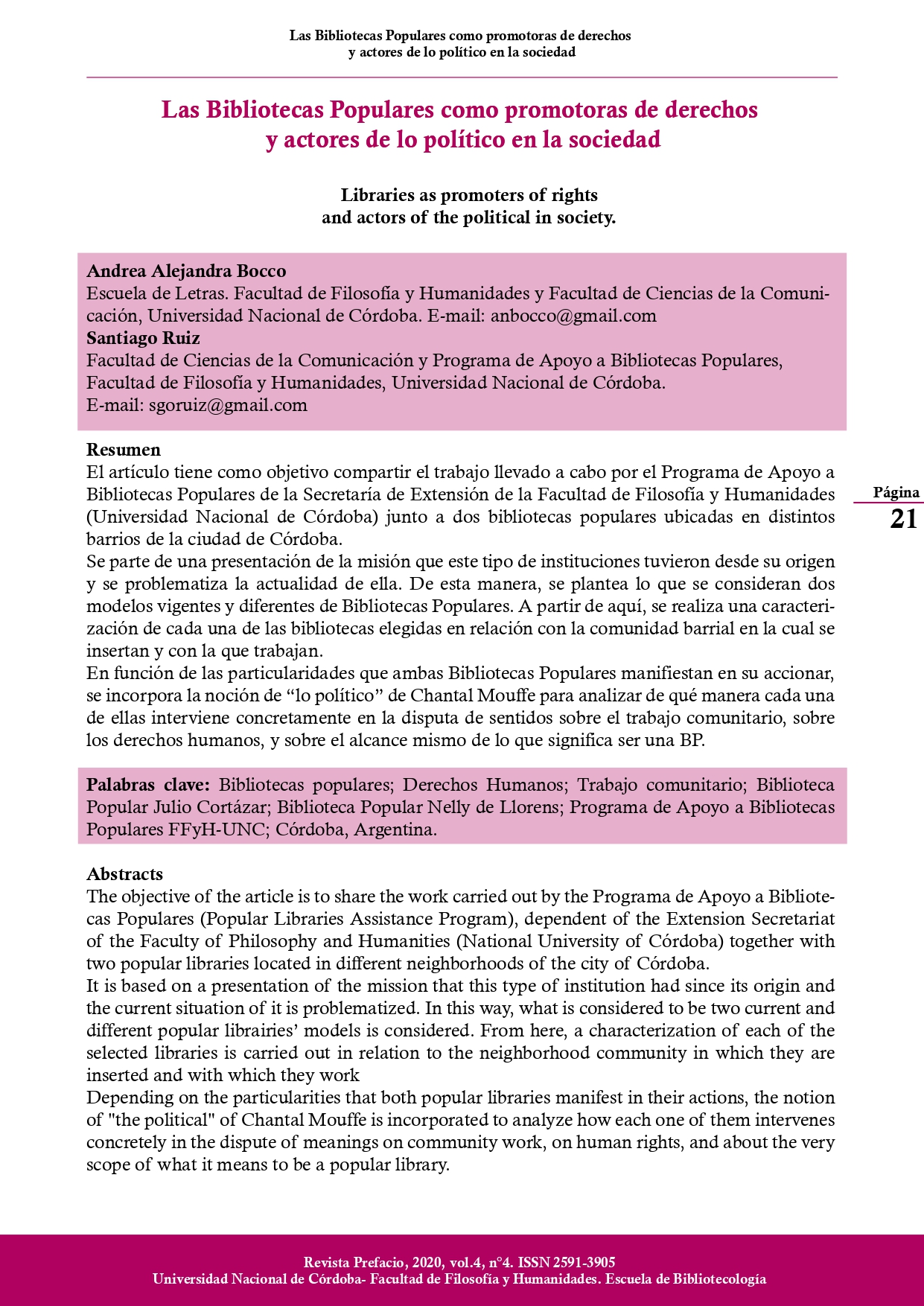Libraries as promoters of rights and actors of the political in society.
DOI:
https://doi.org/10.58312/2591.3905.v4.n4.30346Keywords:
Popular libraries, Human rights, Community work, Popular Library Julio Cortázar, Popular Library Nelly de Llorens, Support Program for Popular Libraries FFyH-UNC, Córdoba, ArgentinaAbstract
The objective of the article is to share the work carried out by the Programa de Apoyo a Bibliotecas Populares (Popular Libraries Assistance Program), dependent of the Extension Secretariat of the Faculty of Philosophy and Humanities (National University of Córdoba) together with two popular libraries located in different neighborhoods of the city of Córdoba.
It is based on a presentation of the mission that this type of institution had since its origin and the current situation of it is problematized. In this way, what is considered to be two current and different popular librairies’ models is considered. From here, a characterization of each of the selected libraries is carried out in relation to the neighborhood community in which they are inserted and with which they work.
Depending on the particularities that both popular libraries manifest in their actions, the notion of "the political" of Chantal Mouffe is incorporated to analyze how each one of them intervenes concretely in the dispute of meanings on community work, on human rights, and about the very scope of what it means to be a popular library.
Downloads








